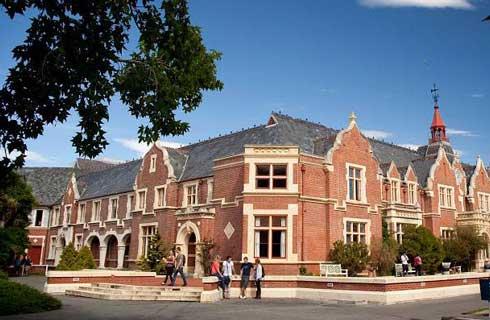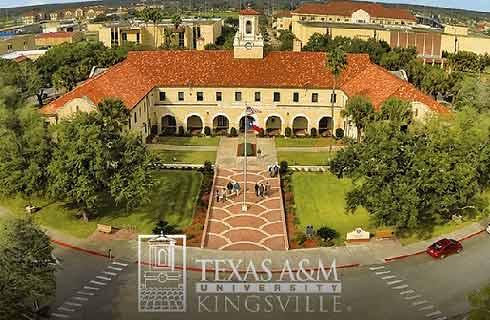- IDP China>
- 课程库>
- 艺术与设计>
- 创意艺术、设计和与传播>
- 传播与媒体研究>
- MLitt Environment, Culture and Communication (Dumfries Campus)
MLitt Environment, Culture and Communication (Dumfries Campus)

学历文凭
Masters Degree (Taught)

专业院系
School of Interdisciplinary Studies

开学时间

课程时长

课程学费

国际学生入学条件
2.1 Hons (or non-UK equivalent) in any subject.
Prospective students with professional experience in communications/journalism may be considered, in complement to their academic qualifications.
All applicants must provide a personal statement (minimum 500 words) outlining your suitability for this programme.
International English Language Testing System (IELTS) Academic and Academic Online (not General Training): 6.5 with no subtests under 6.0
TOEFL (ibt, mybest or athome): 90 overall with Reading 20; Listening 19; Speaking 19; Writing 21
Pearsons PTE Academic: 59 with minimum 59 in all subtests
Cambridge Proficiency in English (CPE) and Cambridge Advanced English (CAE): 176 overall, no subtest less than 169
Oxford English Test: 7 overall with no subtest less than 6
LanguageCert Academic SELT: 70 overall with no subtest less than 60
IDP—雅思考试联合主办方

雅思考试总分
6.5
了解更多
雅思考试指南
- 雅思总分:6.5
- 托福网考总分:79
- 托福笔试总分:160
- 其他语言考试:PTE (Academic) - 59 with minimum 59 in all subtests
CRICOS代码:
申请截止日期: 请与IDP顾问联系以获取详细信息。
课程简介
相关申请
 预科
预科 奖学金
奖学金 实习机会
实习机会 在校学习
在校学习 跨境学习
跨境学习 校园授课-线上开始
校园授课-线上开始 在线/远程学习
在线/远程学习
学校排名

世界排名93
数据源:泰晤士高等教育世界大学排名
关于格拉斯哥大学

自1451年以来,著名机构格拉斯哥大学就致力于教育学生。格拉斯哥是世界排名前100位的大学,并且是英国第四古老的高等教育机构,曾被''2018年优秀大学指南''授予苏格兰年度大学的称号 。格拉斯哥大学向来自140多个国家的学生和员工敞开大门,是一所真正的国际组织。此外,它还是Universitas 21的创始成员之一。Universitas 21是一个以研究为重点、致力于提高全球高等教育标准的机构网络。学生可以从该机构提供的600多种不同课程中进行选择,并可以从卓越的学生支持服务处寻求指导。该服务处帮助解决有关工作量、英国生活、甚至如何支付学费的咨询。学生还可以访问每年提供350多个实习机会的大学实习中心。格拉斯哥拥有诸多著名校友,名单从发明防腐剂的约瑟夫·利斯特(Joseph Lister)一直到现任苏格兰第一部长的尼古拉·斯特金(Nicola Sturgeon)。1933年阿尔伯特·爱因斯坦甚至在这里发表了关于相对论的演讲。格拉斯哥是苏格兰的文化之都,非常适合国际学生。它拥有多种多样、丰富多彩的博物馆、画廊、表演艺术中心以及令人惊叹的建筑典范。离开大学12个月后,格拉斯哥95.9%的毕业生找到工作或继续深造。学生们可以放心,格拉斯哥的学位课程将使他们在毕业后做好就业准备。
本校相关课程

动物学理学士(荣誉)
学历文凭
Bachelor Degree with Honours
开学日期
课程费用总额


BVMS兽医和外科
学历文凭
Bachelor Degree
开学日期
课程费用总额


理学士(荣誉)兽医生物科学
学历文凭
Bachelor Degree with Honours
开学日期
课程费用总额


BD(MIN)(荣誉)神学和宗教研究
学历文凭
Bachelor Degree with Honours
开学日期
课程费用总额


文学硕士(荣誉)戏剧研究
学历文凭
Undergraduate Masters
开学日期
课程费用总额


BTechEd(荣誉)技术教育
学历文凭
Bachelor Degree with Honours
开学日期
课程费用总额

其他相关课程

Environmental Pollution and Management PhD
 布莱顿大学
布莱顿大学泰晤士高等教育世界大学排名:801
学历文凭
Ph.D.
开学日期
课程费用总额


环境与商业(荣誉)文学士学位
 利兹大学
利兹大学泰晤士高等教育世界大学排名:129
学历文凭
Bachelor Degree with Honours
开学日期
课程费用总额


哲学博士(可持续资源管理)
 纽卡斯尔大学
纽卡斯尔大学学历文凭
Ph.D.
开学日期
课程费用总额


MSc Environmental Sustainability
 爱丁堡龙比亚大学
爱丁堡龙比亚大学泰晤士高等教育世界大学排名:501
学历文凭
Masters Degree (Taught)
开学日期
课程费用总额


野生动物科学学士学位(荣誉学位)
 昆士兰大学
昆士兰大学泰晤士高等教育世界大学排名:70
学历文凭
Bachelor Degree with Honours
开学日期
课程费用总额


理学硕士淡水环境综合管理
 伦敦玛丽女王大学
伦敦玛丽女王大学泰晤士高等教育世界大学排名:135
学历文凭
Masters Degree (Taught)
开学日期
课程费用总额


























